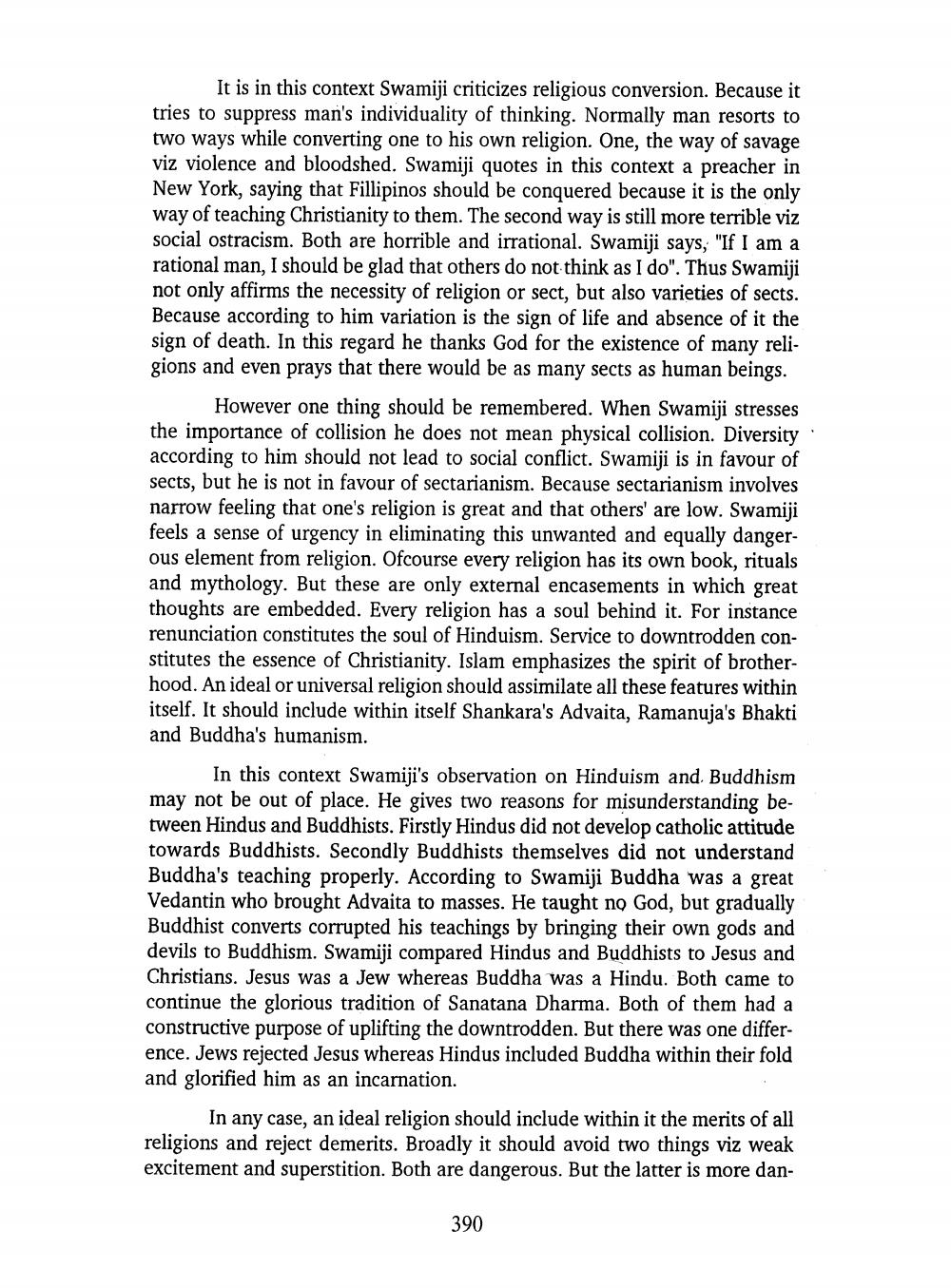________________
It is in this context Swamiji criticizes religious conversion. Because it tries to suppress man's individuality of thinking. Normally man resorts to two ways while converting one to his own religion. One, the way of savage viz violence and bloodshed. Swamiji quotes in this context a preacher in New York, saying that Fillipinos should be conquered because it is the only way of teaching Christianity to them. The second way is still more terrible viz social ostracism. Both are horrible and irrational. Swamiji says, "If I am a rational man, I should be glad that others do not think as I do". Thus Swamiji not only affirms the necessity of religion or sect, but also varieties of sects. Because according to him variation is the sign of life and absence of it the sign of death. In this regard he thanks God for the existence of many religions and even prays that there would be as many sects as human beings.
However one thing should be remembered. When Swamiji stresses the importance of collision he does not mean physical collision. Diversity according to him should not lead to social conflict. Swamiji is in favour of sects, but he is not in favour of sectarianism. Because sectarianism involves narrow feeling that one's religion is great and that others' are low. Swamiji feels a sense of urgency in eliminating this unwanted and equally dangerous element from religion. Ofcourse every religion has its own book, rituals and mythology. But these are only external encasements in which great thoughts are embedded. Every religion has a soul behind it. For instance renunciation constitutes the soul of Hinduism. Service to downtrodden constitutes the essence of Christianity. Islam emphasizes the spirit of brotherhood. An ideal or universal religion should assimilate all these features within itself. It should include within itself Shankara's Advaita, Ramanuja's Bhakti and Buddha's humanism.
In this context Swamiji's observation on Hinduism and Buddhism may not be out of place. He gives two reasons for misunderstanding between Hindus and Buddhists. Firstly Hindus did not develop catholic attitude towards Buddhists. Secondly Buddhists themselves did not understand Buddha's teaching properly. According to Swamiji Buddha was a great Vedantin who brought Advaita to masses. He taught no God, but gradually Buddhist converts corrupted his teachings by bringing their own gods and devils to Buddhism. Swamiji compared Hindus and Buddhists to Jesus and Christians. Jesus was a Jew whereas Buddha was a Hindu. Both came to continue the glorious tradition of Sanatana Dharma. Both of them had a constructive purpose of uplifting the downtrodden. But there was one difference. Jews rejected Jesus whereas Hindus included Buddha within their fold and glorified him as an incarnation.
In any case, an ideal religion should include within it the merits of all religions and reject demerits. Broadly it should avoid two things viz weak excitement and superstition. Both are dangerous. But the latter is more dan
390




